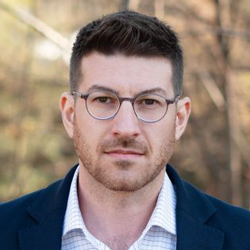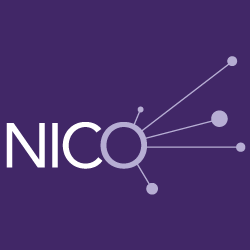Events
Past Event
WED@NICO SEMINAR: Alexander Gates, University of Virginia "Beyond Core-Periphery: Uncovering the Impacts of Scientific Networks on Resources and Recognition"
Northwestern Institute on Complex Systems (NICO)
12:00 PM
//
Lower Level, Chambers Hall
Details

Speaker:
Alexander Gates, Assistant Professor, School of Data Science, University of Virginia
Title:
Beyond Core-Periphery: Uncovering the Impacts of Scientific Networks on Resources and Recognition
Abstract:
We discuss two projects that quantify the consequences of our network location for our access to resources and rewards in science. First, we investigate the dynamics of international science through the lens of national citation preferences, introducing a novel measure to characterize these processes and enabling a network analysis of global knowledge production. Our results challenge the conventional core-periphery narrative of global science, instead uncovering several fragmented communities of knowledge production that are rapidly evolving and constraining the diffusion of ideas across international borders. Second, we quantitatively model the complex dynamics of philanthropic grant making in the US. Using publicly available tax records, we build the scientific funding network (925,335 grants between 69,000 institutions, totaling over $208 billion) to reveal the extent to which funders support geographically close recipients, and that grant-giving relationships become increasingly entrenched over time. These principles combine with high levels of bipartite clustering to empower a predictive model of future funding relationships. Together, these projects shed light on the barriers and opportunities for the equitable distribution of scientific resources and recognition, ultimately guiding policy recommendations to foster more inclusive and impactful scientific endeavors.
Speaker Bio:
Alex Gates is a network scientist in the School of Data Science at the University of Virginia where he directs the Connected Data Hub. His research focuses on the Science of Science to analyze and model how organizational structure and strategic decisions impact innovation, creativity, and success. His work has been featured in top journals including Nature, PNAS, and The Journal of Machine Learning.
Location:
In person: Chambers Hall, 600 Foster Street, Lower Level
Remote option: https://northwestern.zoom.us/j/91898440648
Passcode: NICO2023
About the Speaker Series:
Wednesdays@NICO is a vibrant weekly seminar series focusing broadly on the topics of complex systems and data science. It brings together attendees ranging from graduate students to senior faculty who span all of the schools across Northwestern, from applied math to sociology to biology and every discipline in-between. Please visit: https://bit.ly/WedatNICO for information on future speakers.
Time
Wednesday, September 27, 2023 at 12:00 PM - 1:00 PM
Location
Lower Level, Chambers Hall Map
Contact
Calendar
Northwestern Institute on Complex Systems (NICO)
WED@NICO Winter Seminar Series returns on January 28th!
Northwestern Institute on Complex Systems (NICO)
12:00 PM
//
Lower Level, Chambers Hall
Details

The Wednesdsays@NICO speaker series will return for the winter quarter on January 28th, 2026, running through March 4th. Speakers will be announced in January!
Location:
In person: Chambers Hall, 600 Foster Street, Lower Level
Remote option: Zoom links will be provided
About the Speaker Series:
Wednesdays@NICO is a vibrant weekly seminar series focusing broadly on the topics of complex systems, data science and network science. It brings together attendees ranging from graduate students to senior faculty who span all of the schools across Northwestern, from applied math to sociology to biology and every discipline in-between. Please visit: https://bit.ly/WedatNICO for information on future speakers.
Time
Wednesday, January 28, 2026 at 12:00 PM - 1:00 PM
Location
Lower Level, Chambers Hall Map
Contact
Calendar
Northwestern Institute on Complex Systems (NICO)

